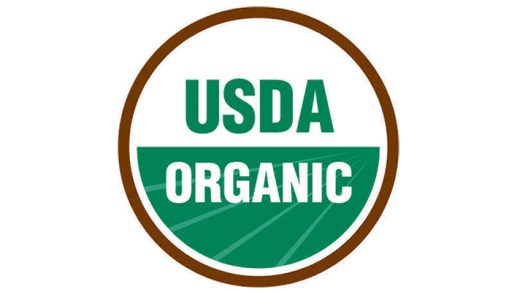Farmers and ranchers rise early each morning to perform a plethora of duties. Their works include responsibility for grains, fruits, vegetables, and livestock on their farms. Farmers are well-educated and hardworking individuals. Their main goal is to supply people with a variety of safe and healthy food products fit for human consumption. Pesticides are sometimes used in the agricultural industry to control or stop conditions that can negatively impact crops. Farmers must be proactive when it comes to handling crop diseases, viruses, algae, mold, weeds, insects, and pests, all potential problems which can threaten harvests. There are numerous ways in which farmers can handle issues. Regarding pesticides, there are many types that do different things. Per the United States Environmental Protection Agency (EPA), examples may include some of the following:
Farmers may elect to use pesticides in response to problems. For example, insects feeding on crops can cause destruction. This may lower food yields, disrupt food supplies, and harm the economy. Thus, the use of insecticides may be deemed necessary to help control or prevent insects from destroying crops and may also help ensure high-quality yields. However, the practice of using pesticides is controversial because of the impact that some chemicals may have on human health and the environment. Potentials exist for some chemicals to pass to people through treated foods and possibly cause physical harm. Pesticides may also pose dangers to workers and farmers who handle chemicals.
The question begs, is pesticide use safe? NBC explains, “Pesticide science is a tricky thing. Studies showing harm often look at correlations rather than causation, meaning that they don’t prove that pesticide exposure causes the health outcome detected.” Some scientists believe that safety boils down to amounts in foods that people ingest. Presently, a common misconception exists. People frequently think, “I will exclusively buy organic food to avoid pesticides completely.” However, organic foods are not necessarily pesticide-free. Farmers may use approved natural pesticides rather than synthetic ones.
USDA-certified organic foods earn their title if they are certified to have grown on soil that had no prohibited substances for a three-year period. Prohibited substances include most synthetic fertilizers and pesticides. Per the United States Department of Agriculture, “Regulations prohibit organically processed foods from containing artificial preservatives, colors, or flavors and require that their ingredients are organic, with some minor exceptions.” They also explain, “When packaged products indicate that they are ‘made with organic (specific ingredient or food group),’ this means that they contain at least 70% organically produced ingredients. The remaining non-organic ingredients are produced without using prohibited practices (genetic engineering, for example) but can include substances that would not otherwise be allowed in 100% organic products.” “Made with organic products” do not necessarily bear the USDA organic seal.
Each year, the Environmental Working Group (EWG) publishes a shopper’s guide to pesticides in produce. Their lists are based on tests by the U.S. Department of Agriculture and the Food and Drug Administration. Foods involved in testing typically are washed, scrubbed, and peeled before results are gathered. Thus, taking those simple steps will not help people avoid pesticide exposure. EWG recommends that for foods which appear on their dirty dozen’s list, people buy organic versions if they can. The dirty twelve for 2022 includes strawberries, spinach, kale, and collard and mustard greens, meaning that these foods tested highest in pesticides. EWG also created a clean fifteen list of non-organic produce with the least pesticides. Topping that list are avocados, sweet corn, and pineapples. EWG supports peer-reviewed research and clinical trials that examine what happens when people switch to fully organic diets. Alexis Temkin, a toxicologist at EWG with expertise in toxic chemicals and pesticides, explains the results for those on organic diets, “Concentrations and measurements of pesticides decrease very rapidly.” Given that organic diets do demonstrate less exposure to pesticides and antibiotics overall, per EWG, it is likely that people may gain benefits from incorporating organic foods into their diet.
Fresh grown fruits and vegetables provide essential nutrients; thus, it is important that people eat adequate amounts. When it comes down to safety, scientists are pushing to learn more about the impact of pesticides in non-organic foods, as well as the effects of natural pesticides in organic foods. Though the latter sounds healthier, it is argued that it comes down to what levels are being ingested. Per Teresa Thorne, Executive Director at the Alliance for Food and Farming, “Residues on conventional-grown are already so minute if they’re present at all.” Thorne explains that 99.8% of the fruits and vegetables tested by the USDA under the Pesticide Data Program are well below the Environmental Protection Agency’s safety levels, and a third have no detectable residues at all, as shared by USA Today. Since organic foods are more expensive to buy, there is concern that low-income consumers may avoid buying fruits or vegetables altogether. However, since possible links exist between pesticide use and some forms of human cancer, it’s likely wise to limit consumption of foods typically containing large amounts of pesticides and opt for those which are pesticide-free whenever possible.
This article is intended as general information only.
We hope you’ve enjoyed this article. While you’re here, we have a small favor to ask…
Support the AMAC Foundation. Our 501(c)(3) powers the AMAC Foundation’s Social Security Advisory Services. This team of nationally accredited advisors offers on-time, on-the-mark guidance for those approaching or receiving Social Security – at no cost.
Why do carrots improve your sight? They contain vitamin see!…
Colin Powell used to counsel preparation, foresight, and realism. A…
According to the USDA, the overall U.S. citrus production for the…
WASHINGTON, DC, June 16 — Poor white farmers in America will live in…
Today BFA is proud to welcome Martha Boneta. If you don’t know her…
“What do Mexican drug cartels and avocados have in common?” you might…
From Gimmeinfo.com Cooking organically doesn’t have to mean using…
from – Real Clear Policy – by Stephen Moore Just when it seems…



